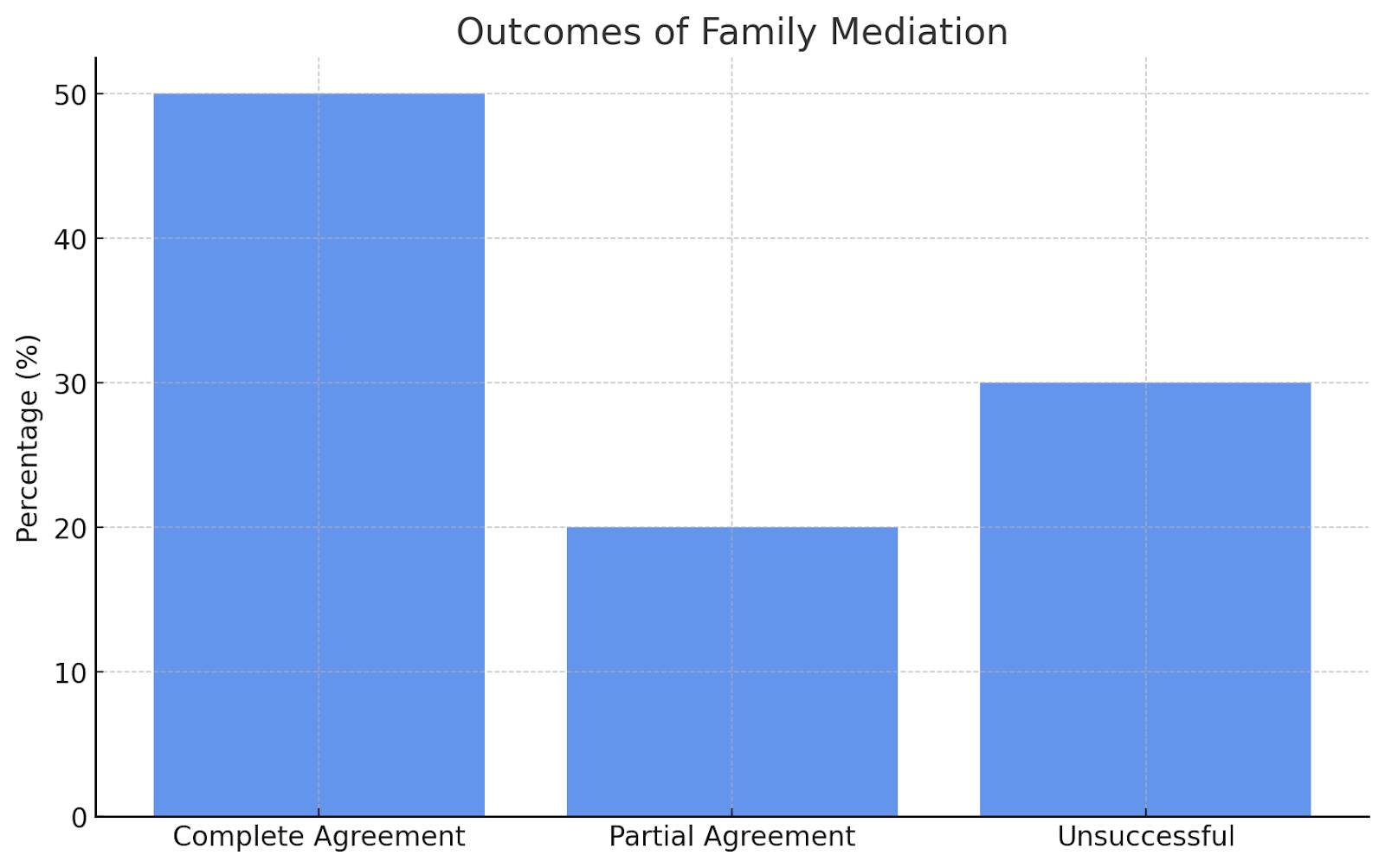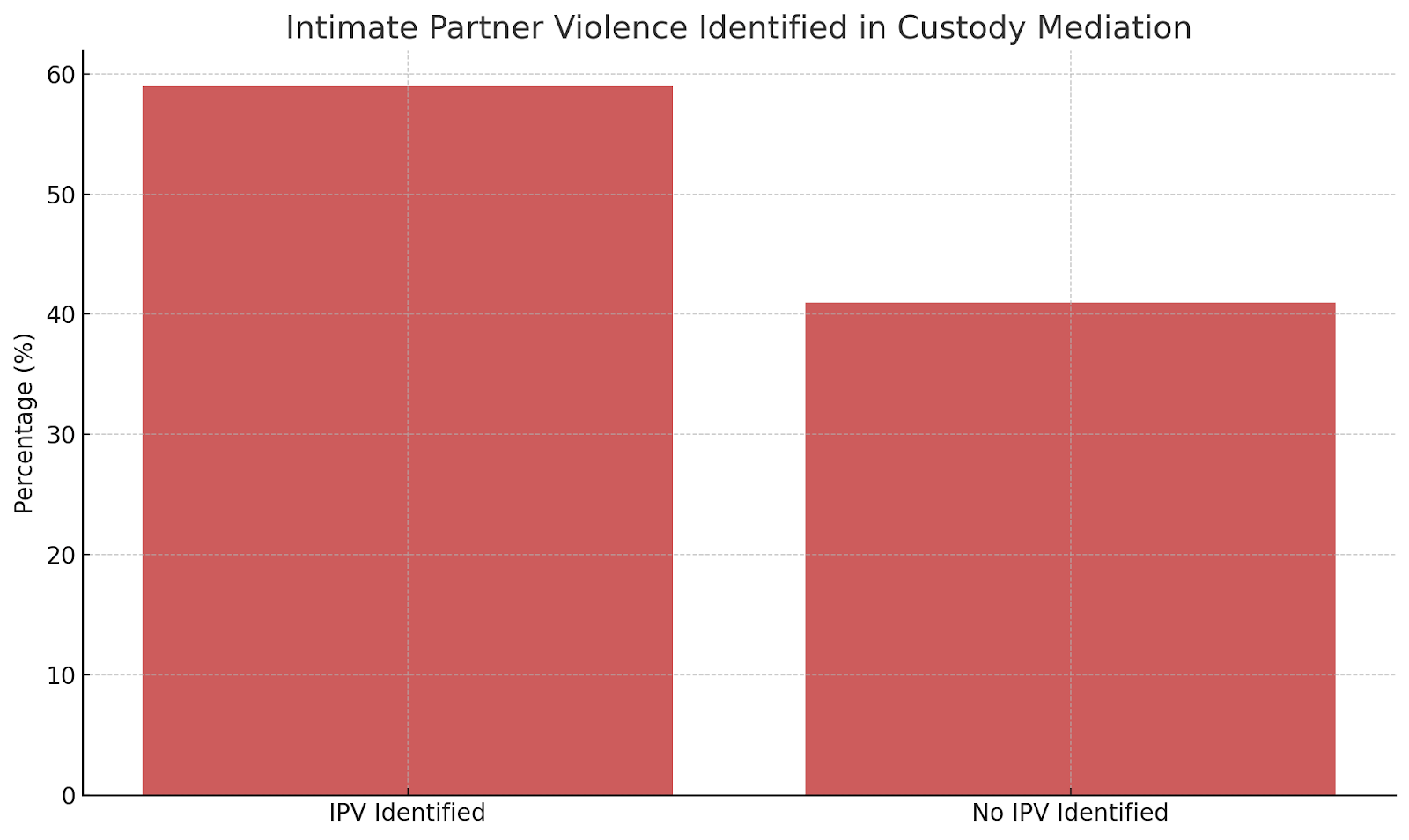Professional Mediation Services
Our Chicago, IL mediation attorney understands that handling legal disputes requires a deep understanding and a meticulous approach. Mediation, as a form of alternative dispute resolution, has increasingly become a preferred method for resolving disputes outside of traditional courtroom settings. This process allows parties involved in various types of legal matters, including family law, commercial disputes, and employment issues, to come to mutually agreeable solutions with the guidance of a neutral third-party mediator. In Chicago, the legal framework governing mediation emphasizes confidentiality, voluntariness, and the non-binding nature of the mediation process until an agreement is reached, creating a safe and open environment for all parties involved.
Our team at Hurst, Robin, Kay & Allen, LLC, leverages and in-depth understanding of the mediation laws in Chicago, providing our clients with informed guidance and support throughout the mediation process. We believe in the power of mediation to resolve disputes in a more amicable, efficient, and cost-effective manner compared to traditional litigation. Our approach is tailored to meet the unique needs of each client, so they understand their rights and options under Illinois law. By fostering a collaborative environment, we help our clients achieve their desired outcomes while minimizing the emotional and financial toll often associated with legal disputes. Trust in our commitment to excellence as we guide you through the mediation process, leveraging our knowledge and experience to advocate for your best interests.
Table of Contents
- Professional Mediation Services
- How Mediation Can Help You
- Do’s and Don’ts Regarding Mediation
- Chicago Mediation Infographic
- Chicago Mediation FAQs
- Hurst, Robin, Kay & Allen, LLC, Chicago Mediation Lawyer
- Contact Our Chicago Mediation Attorney Today
The Mediation Process in Chicago
The mediation process in Chicago can be complicated and requires a comprehensive understanding of legal frameworks and the ability to facilitate constructive dialogue between disputing parties. At Hurst, Robin, Kay & Allen, LLC, we specialize in guiding our clients through this process to achieve resolutions that are both equitable and efficient.
Understanding Mediation
Mediation is a voluntary process where a neutral third party, known as a mediator, assists disputing parties in reaching a mutually acceptable agreement. This process is confidential, allowing parties to openly discuss their issues without fear of repercussion in future legal proceedings. Mediation can be applied to a wide range of disputes, including family law issues, business disputes, and more, making it a versatile tool for conflict resolution.
In the mediation process, working with our attorney is essential. We not only represent our clients’ interests within the mediation but also provide invaluable guidance on the legal implications of proposed agreements. We prepare our clients for the process, so they understand their rights and the potential outcomes. Our goal is to ensure that any agreement reached is not only fair but also complies with Illinois law, protecting our clients’ interests in the long term.
Steps in the Mediation Process
The mediation process typically follows several key steps:
- Initial Consultation: This is where we, as your mediation attorneys, gather information about your case and assess the suitability of mediation for resolving your dispute.
- Selection of a Mediator: We help our clients select a neutral mediator, often one with specific expertise relevant to the dispute at hand.
- Preparation for Mediation: Our team works closely with our clients to prepare their case for mediation. This includes gathering necessary documents, identifying goals, and developing a negotiation strategy.
- Mediation Sessions: During these sessions, parties meet with the mediator to discuss the issues at hand. As your attorneys, we are present to provide legal advice, support, and to help negotiate on your behalf.
- Reaching an Agreement: If mediation is successful, the parties will reach an agreement on the disputed issues. We review any agreements for legal sufficiency and ensure that they protect our clients’ interests.
- Finalization: Once an agreement is reached, it is formalized into a legally binding document. We oversee this process to ensure that the agreement is accurately documented and enforceable under Illinois law.
Marital vs. Separate Property
Distinguishing between marital and separate property is a critical aspect of divorce proceedings. This distinction determines how assets are divided, impacting each party’s financial stability post-divorce. Marital property refers to assets and debts acquired by either spouse during the marriage, typically subject to division upon divorce. Separate property, on the other hand, includes assets owned by either spouse before the marriage or acquired by gift or inheritance during the marriage, usually remaining with the original owner post-divorce. The delineation between these types can become confusing, necessitating professional guidance to ensure a fair and equitable division.
At Hurst, Robin, Kay & Allen, LLC, we understand what is involved in distinguishing between marital and separate property. Our Chicago mediation attorney, plays a pivotal part in this process, offering guidance based on Illinois state laws regarding asset division. Through mediation, we facilitate discussions between parties to reach an amicable agreement on property division, considering the nuances of each asset’s origin, its value, and its classification as marital or separate property. Our goal is to ensure that our clients are fully informed and that their rights are protected throughout the mediation process.
How Mediation Can Help You
Finding a resolution to legal disputes can be both time-consuming and costly. However, there is a method that stands out for its efficiency and effectiveness: mediation. This process involves a neutral third party, known as a mediator, who helps the disputing parties find a mutually satisfactory resolution. Unlike traditional litigation, mediation is less formal, more collaborative, and can be tailored to the specific needs of the parties involved. Specifically, our mediation lawyer can guide individuals through this process, so that their rights are protected while working towards a constructive resolution.
Time and Cost Efficiency
One of the most significant advantages of mediation is its efficiency. Traditional litigation can take months or even years to resolve, whereas mediation can be completed in a fraction of the time. This expediency saves both parties a considerable amount of time and, consequently, legal fees and court costs. With the guidance of a our attorneys, parties can streamline the process further, making mediation a cost-effective alternative to court battles.
Confidentiality and Control
Mediation offers a confidential setting where sensitive information is protected. Unlike court proceedings, which are public, mediation sessions are private, allowing parties to speak freely without fear of public exposure. This confidentiality is essential in cases involving personal or sensitive business matters. Furthermore, mediation gives parties more control over the outcome. Instead of a judge or jury making decisions, the parties involved have the final say in the agreement, so that the resolution aligns with their interests and needs.
Preserving Relationships
Litigation is often adversarial, pitting parties against each other in a battle that can sever relationships. Mediation, on the other hand, promotes collaboration and communication. By working together to find a solution, parties can preserve their personal or business relationships. This aspect is particularly important in disputes involving family matters, small businesses, or any situation where parties have ongoing interactions.
Success Rate and Satisfaction
Mediation has a high success rate, with many cases resulting in a mutually agreed upon resolution. Participants in mediation often report higher satisfaction levels compared to those who go through litigation. This satisfaction stems from having a direct role in negotiating the outcome and reaching an agreement that is fair and tailored to their specific needs.
Collaborative and Less Adversarial Approach
Mediation offers a platform for couples to discuss the division of assets in a less adversarial environment than traditional litigation. This approach fosters open communication and mutual respect, which is particularly beneficial when distinguishing between marital and separate property. Our team champions this collaborative process, guiding our clients toward solutions that reflect their shared interests and individual needs.
Customized Solutions
Unlike the rigid outcomes often resulting from court decisions, mediation allows for more tailored solutions in dividing assets. Our skilled attorney works closely with our clients to understand their unique situations, advocating for agreements that accurately reflect the nature of each property. This personalized approach ensures that the division of assets is fair, considering the specific circumstances of the marriage and the properties involved.
Do’s and Don’ts Regarding Mediation
- Do Bring Your Divorce Lawyer
Mediation is often a stressful experience. It can be easy to get bogged down in the particulars without seeing the whole picture. We can be there to help you get through mediation relatively unscathed.
- Do Offer Something in Exchange for Something Else
If all you do is demand something without offering any concessions, mediation can quickly stall, meaning you’ll have to go to court to get these issues resolved. When you offer something in exchange for something else, you’re showing your commitment to mediation.
- Do Be Prepared to Concede on Some Topics
You’re not going to get 100% of what you want in mediation. Decide in advance what you’re willing to concede on to keep the process moving. Our attorney may be able to help you make those decisions.
- Do Put Yourself in Your Spouse’s Shoes
If you’re able to put yourself in your spouse’s shoes during mediation, it can be a smoother, easier process. Try to see things from your spouse’s point of view, and imagine what they may be feeling. Empathy can make mediation less stressful.
- Do Make It Clear You’re Interested in Resolving Matters Without Litigation
If your spouse knows you want to avoid going to court, they may resolve to see mediation through instead of giving up when things get hard. Our lawyer can help you express this desire.
- Don’t Mediate if Your Spouse Has Been Abusive
If you fear for your well-being, avoid mediation and go to court. If your state requires it as part of the divorce proceedings, ask for shuttle mediation, where you and your lawyer are in one room, your spouse is in another and the mediator goes back and forth between the rooms.
- Don’t Try to Avoid Costs by Leaving Your Divorce Lawyer Out
There are better, smarter ways to save money in a divorce. Leaving our attorney out of mediation could be more costly in the long run, when you realize you got less than your fair share of property or more than your share of debt.
- Don’t Come Into Mediation With a Closed Mind
What you wind up agreeing to may not have been what you originally had in mind. Creative solutions can only arise when you’re open-minded going into mediation.
- Don’t Get In Over Your Head
If you don’t understand all the financials, don’t try to mediate on them. Talk to our attorney or your financial advisor before you go back into mediation.
Chicago Mediation Infographic
Chicago Mediation Statistics
Family mediation is an increasingly utilized method for resolving disputes related to divorce, child custody, and financial arrangements. It offers a collaborative alternative to traditional litigation, aiming to reduce conflict and promote mutual agreement.
Research indicates that family mediation is effective in a significant majority of cases. One survey found that mediation was successful in over 70% of cases, with 50% reaching a complete agreement and an additional 20% achieving partial agreements. Similarly, studies have reported success rates ranging from 70% to 80% in family dispute mediations.
In California, a comprehensive study involving 1,388 families across 51 counties revealed that 82% of families participated in mediation sessions, with a high rate of satisfaction reported among parents. This underscores the effectiveness of mediation in facilitating workable agreements, particularly concerning child custody arrangements.
However, the presence of domestic violence poses challenges to the mediation process. A study funded by the National Institute of Justice found that mediators identified intimate partner violence in 59% of cases during custody mediation sessions. This highlights the need for effective screening and tailored approaches to ensure the safety and fairness of the mediation process in such contexts.
Chicago Mediation Statistics
According to national data, ten percent of custody cases are decided through mediation, and only four percent actually go to trial. Women are awarded custody in approximately 80 percent of custody cases. About 22 percent of fathers see their children more than once a week after divorce.
If you are involved in a child custody or visitation case, call our office to see if mediation is an option.
Chicago Mediation FAQs
What legal issues can be resolved through mediation in Chicago, IL?
In Chicago, IL, mediation can be utilized to resolve a wide range of legal disputes including but not limited to family law matters such as divorce, child custody, and support issues, civil disputes like contract disagreements, landlord-tenant conflicts, and real estate matters, as well as employment disputes including wrongful termination and discrimination cases. The flexibility of mediation allows parties to address and negotiate virtually any type of legal issue, with the primary requirement being the willingness of both parties to engage in the process to find a mutually acceptable solution.
Is mediation legally binding in Chicago, IL?
The agreements reached through mediation in Chicago, IL, can become legally binding once both parties have signed the mediated agreement and, if necessary, have it approved by a court. While the mediation process itself is voluntary and non-binding, the final agreement, once formalized into a written document and signed by both parties, holds the same legal weight as a court order. This means that parties are legally obligated to adhere to the terms of the agreement, and failure to do so could result in legal enforcement actions.
How long does the mediation process typically take in Chicago, IL?
The duration of the mediation process in Chicago, IL, varies widely depending on the complexity of the issues at hand and the willingness of the parties to reach a compromise. Some mediations may be completed in a single session lasting a few hours, while others might require multiple sessions spread out over weeks or even months. Generally, mediation is faster than going to trial, offering parties a more expedient way to resolve their disputes.
Are mediators in Chicago, IL, required to have specific qualifications or certifications?
While Illinois does not mandate a specific certification for mediators, it is highly recommended that parties choose a mediator who has received formal training in mediation and conflict resolution. Many mediators in Chicago, IL, are also experienced attorneys or retired judges with extensive knowledge of Illinois law and the legal system. Selecting a mediator with a strong background in the area of law related to the dispute can significantly enhance the mediation process and outcome.
Can mediation be used to modify existing legal agreements or court orders in Chicago, IL?
Yes, mediation can be used to modify existing legal agreements or court orders in Chicago, IL, provided that both parties agree to participate in the mediation process and are open to renegotiating the terms. This is particularly common in family law, where changes in circumstances may necessitate adjustments to child custody arrangements, support payments, or other aspects of a divorce decree. Mediation offers a flexible and collaborative environment to discuss and agree upon such modifications without the need to return to court.
Hurst, Robin, Kay & Allen, LLC, Chicago Mediation Lawyer
30 N La Salle St #1210, Chicago, IL 60602
Contact Our Chicago Mediation Attorney Today
At Hurst, Robin, Kay & Allen, LLC, our Chicago mediation lawyer, is committed to providing our clients with exceptional legal guidance through the mediation process. We understand the details of Illinois mediation laws and strive to offer a path to resolution that is both efficient and effective. Our approach is rooted in a deep understanding of the legal landscape and a genuine commitment to our clients’ best interests. By choosing to work with us, parties can benefit from a collaborative process that seeks to achieve amicable resolutions, tailored to the unique needs and circumstances of each case.
Our dedication to excellence and client satisfaction sets us apart as a leading firm for mediation services in Chicago, IL. Our firm has helped thousands of individuals and families with legal matters and pride ourselves on our ability to work through challenging disputes with professionalism and skill, always aiming to minimize stress and maximize outcomes for our clients. Whether you are facing a family law dispute, a business conflict, or any other legal issue that may benefit from mediation, our team is here to guide and support you. Trust in our expertise and commitment to excellence as we work together towards achieving a positive resolution through mediation.









